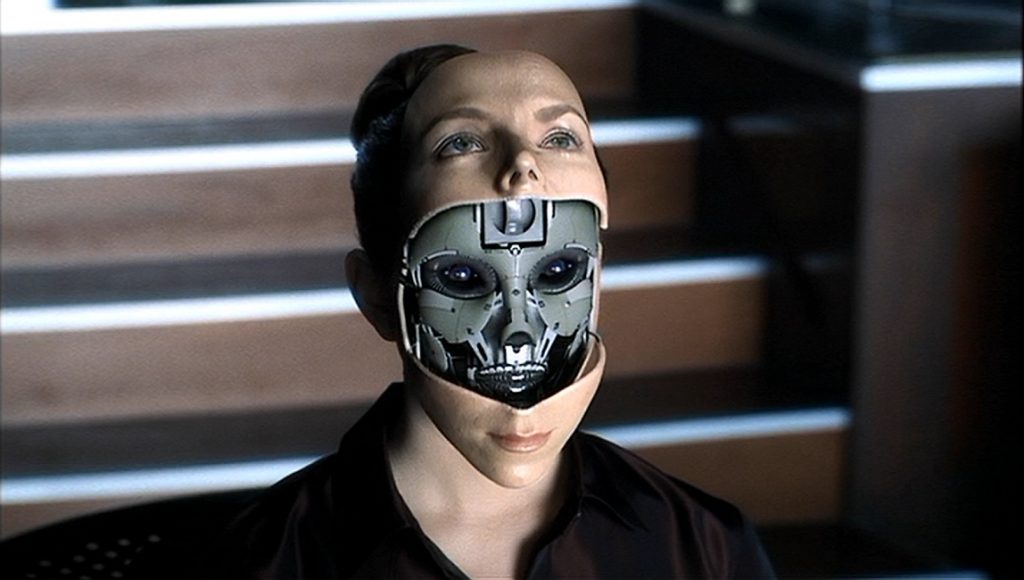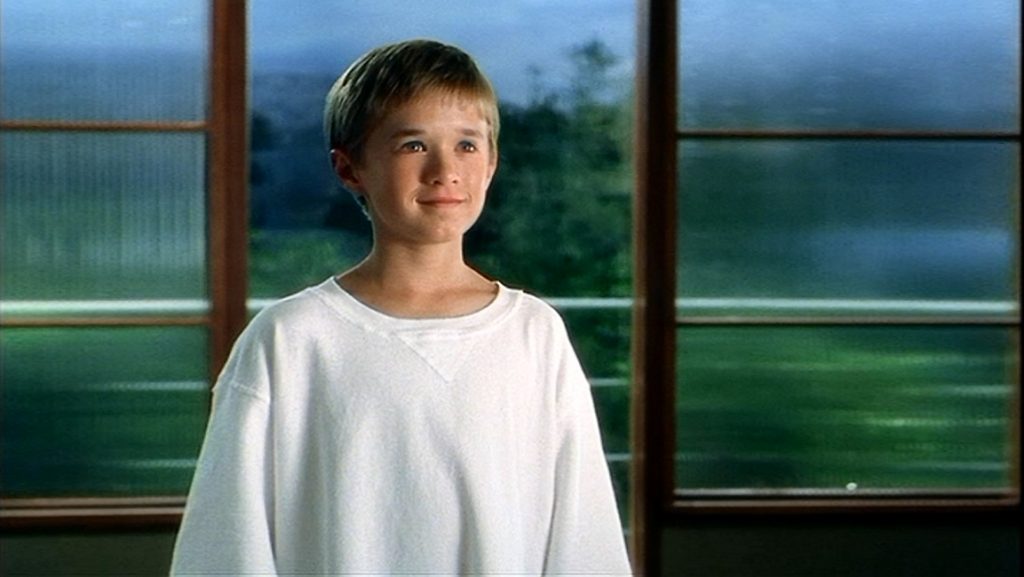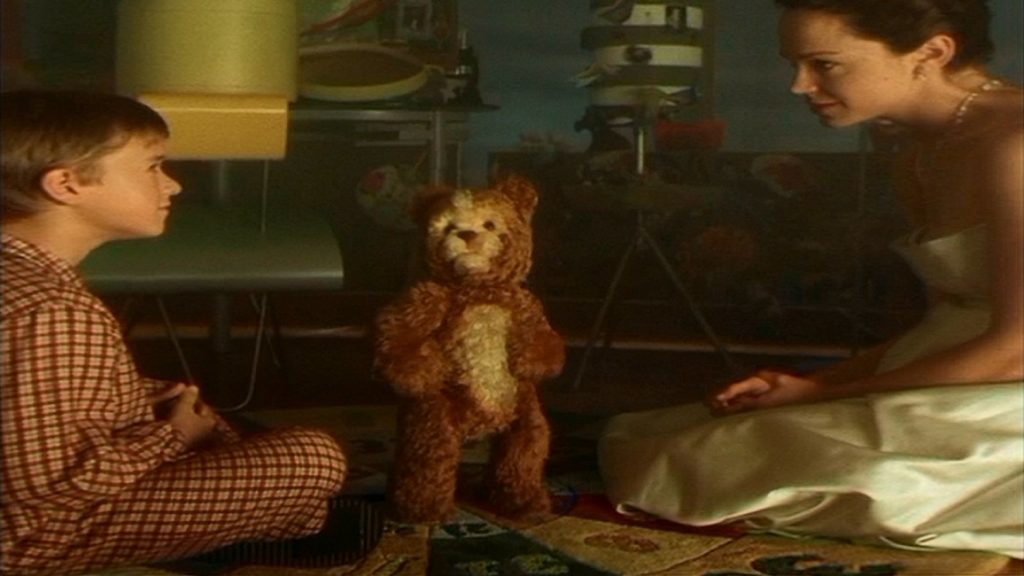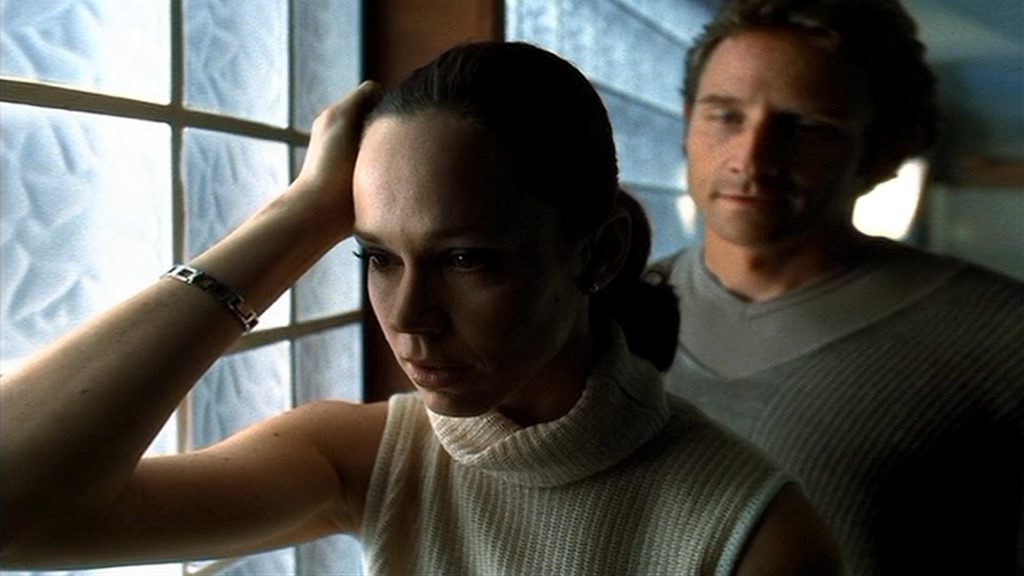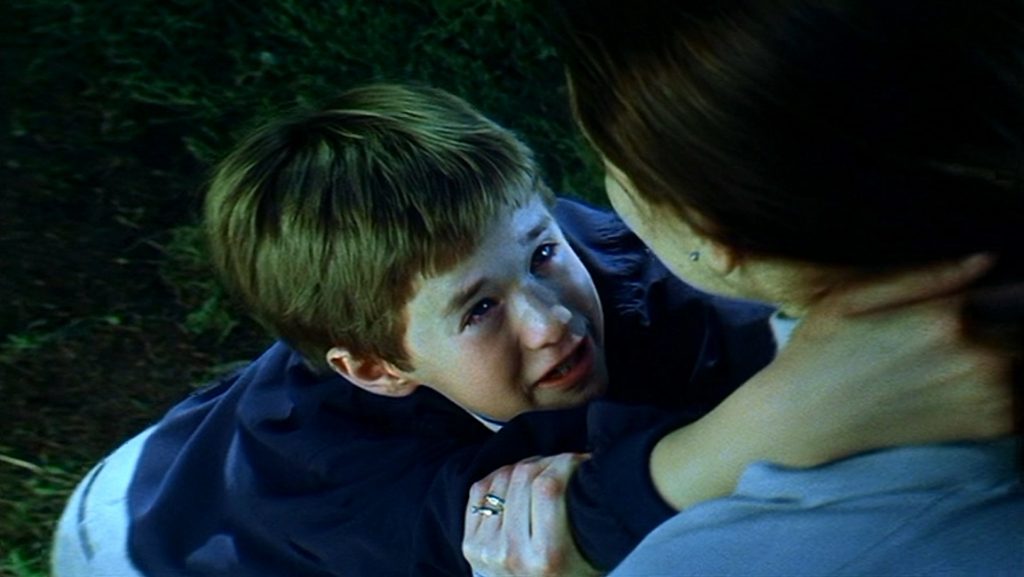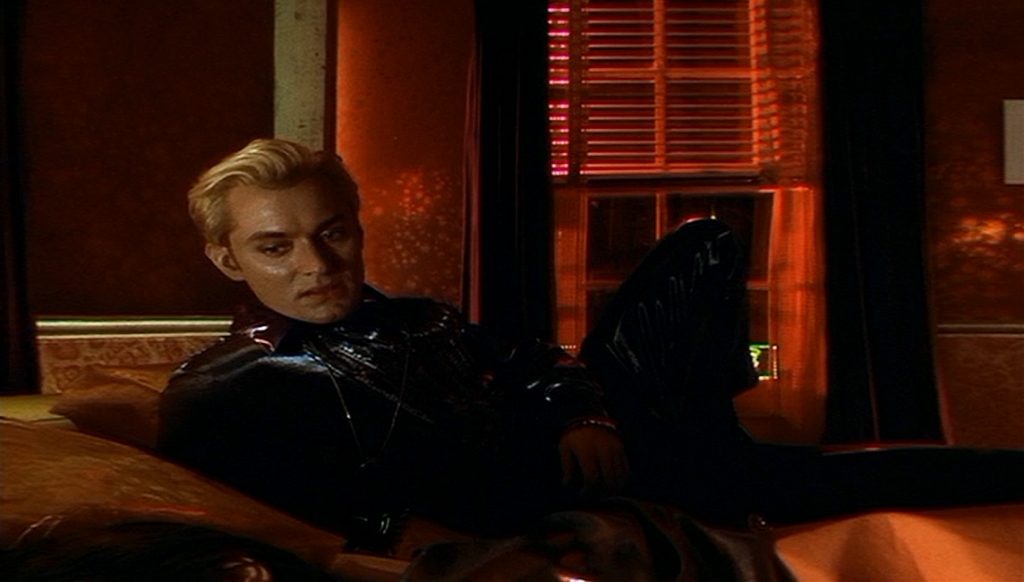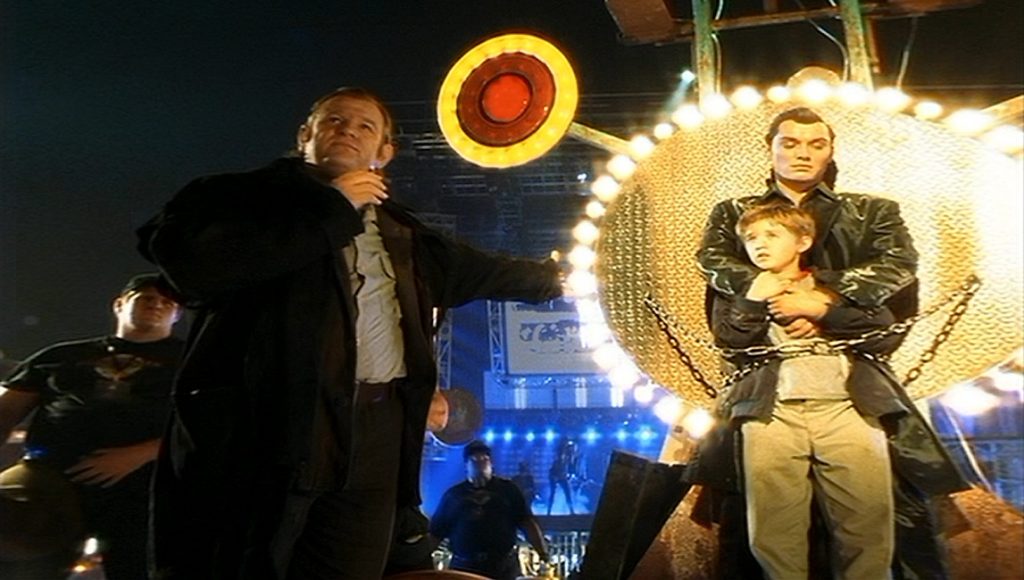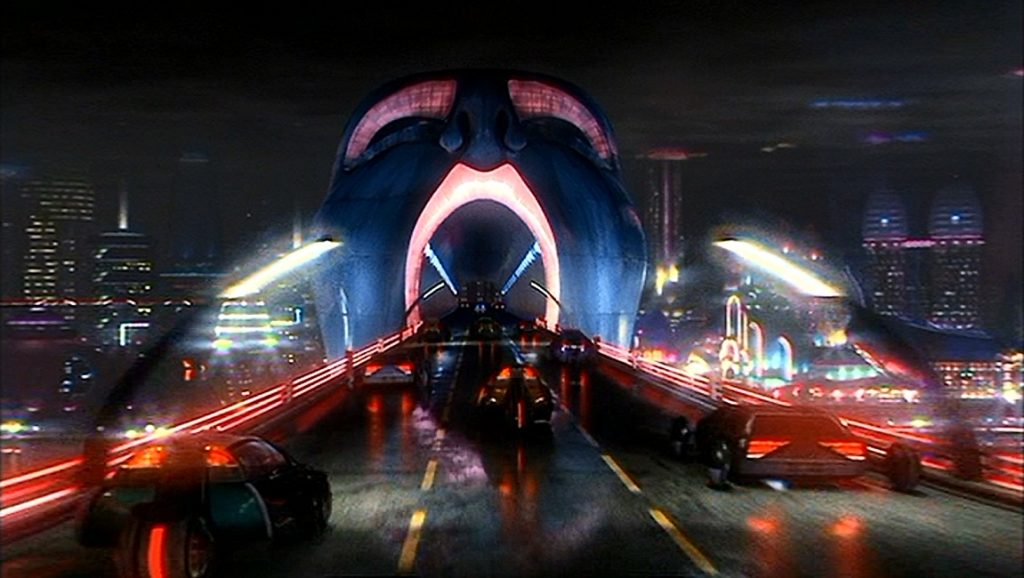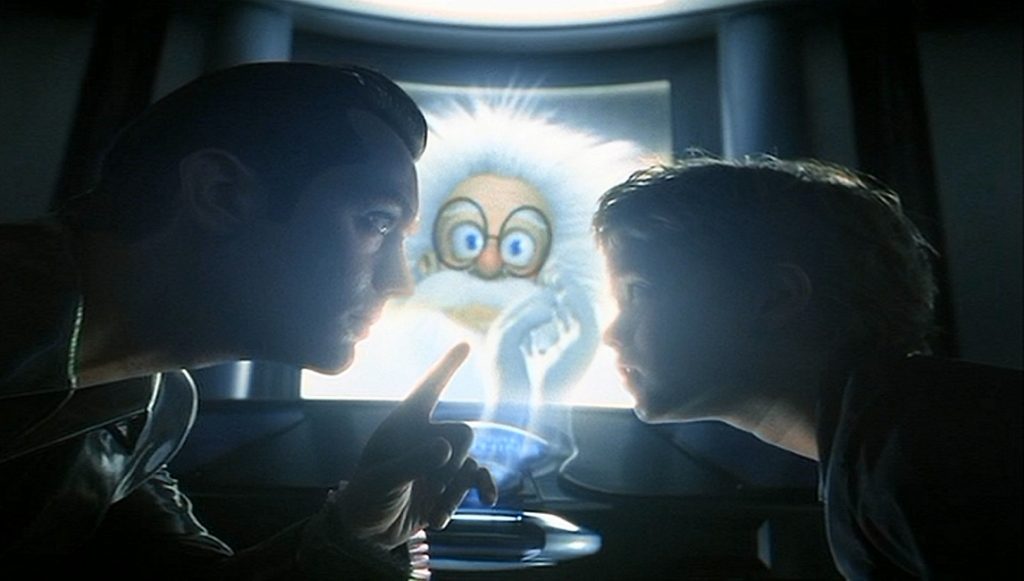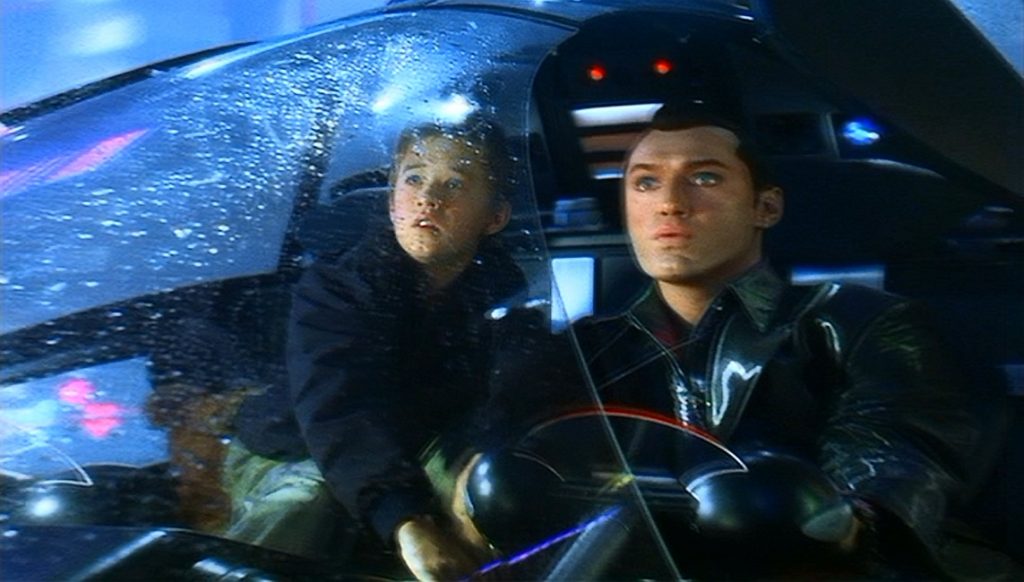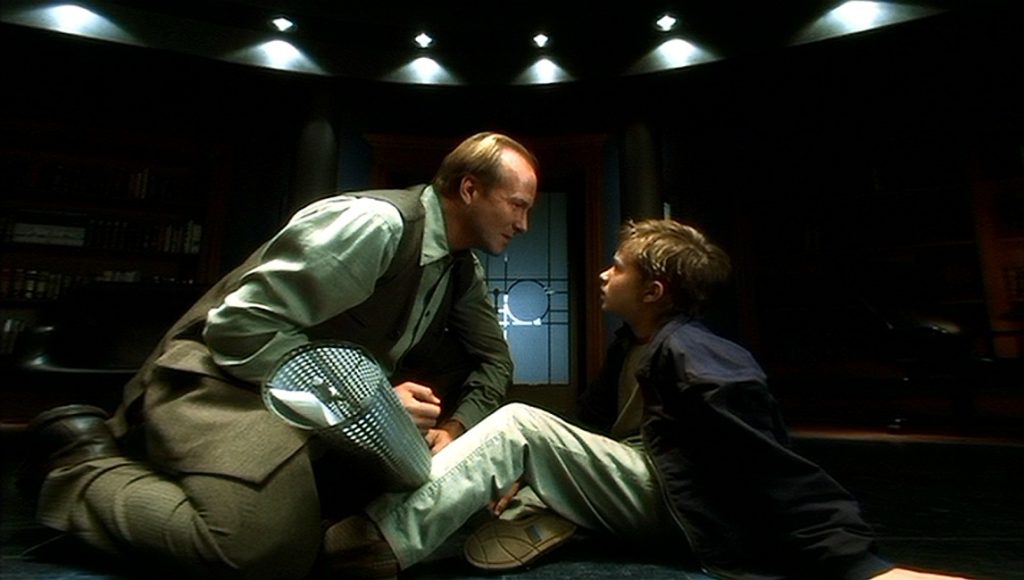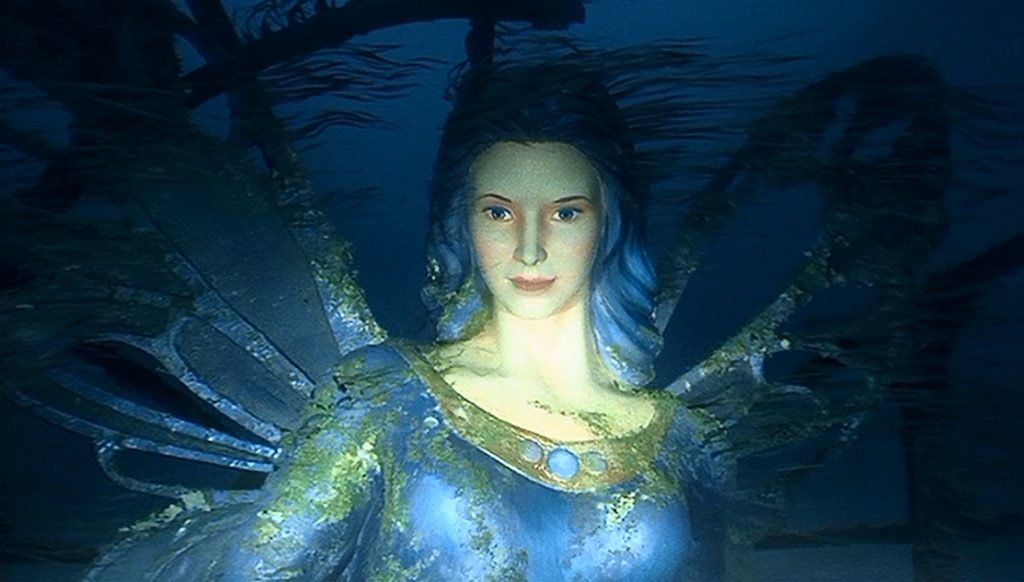A.I. Artificial Intelligence – 2001
Spoiler Alert
This was a phenomenal movie, one of those films that was so sweet and beautiful that there are parts that I can’t ever watch without crying. The movie was about the moral implications of creating artificial intelligence with the ability to mimic real emotions. To do this, it used the fairy tale of Pinocchio as a plot device, the main thrust of the movie’s story arch. Just like the wooden boy in the old story wanted to become a real boy, so too did the metal boy in A.I.
And it did it in such a beautiful and meaningful way. The film starts out explaining that the story takes place in a world where Global warming has caused the sea levels to rise, submerging all the major coastal cities of the world, including New York. The offices of one of the most prominent robotics companies is based in the drowned city.
The film is intelligent and makes you think about what you are watching and listening to. Because of the global warming, the earth’s population has been drastically reduced. As a result, many of the needs of society are fulfilled by mecha, robots who can simulate human appearance, behavior, and emotion. Right off the bat, when the character of Professor Hobby, one of the leading robotics scientists, played by William Hurt, suggests that a mecha can be programmed with real human emotions, one of his fellow scientists asks the big question. If we create a machine that can feel emotions, what is our responsibility to that machine?
It is recognized as a moral question, and if you think about it, it is a monumentally important question. We create a mecha that can love. That mecha will outlast us. That machine will never grow old, never die. Thus, the love that it feels will never fade or diminish. Just as a parent is responsible for a human child, would we not then be responsible for our artificial creations? What happens to them after we are gone?
And even on a smaller level, if we create a machine that loves us, what happens if our own emotions shift. What happens to that mecha’s love when a newer model is created or even if our own fluid emotions change? The machine’s emotions cannot change. Well, in the story, that is pretty much what happens.
Sam Robards and Frances O’Connor play Henry and Monica Swinton. Their son, Martin, played by Jake Thomas, has been placed in suspended animation until a cure for his rare and fatal disease can be found. In order to help Monica let go of her son, who medical science cannot help, a mecha child is created. Thus David, masterfully played by Haley Joel Osment, is introduced.
Osment’s performance was nothing short of genius. The child actor had already proven himself in other dramatic films such as 1991’s The Sixth Sense, and 2000’s Pay it Forward. He was a phenomenon! He was an amazing actor, a wonderful and rare thing in a child. At 12 or 13 years old when A.I. was filmed, his performance was more impressive than many established adult actors. I cannot say enough good things about his incredible sense of emotional gravitas, his perfect sense of dramatic timing, and his ability to create a fully developed character.
The drama of the film comes in when a cure is discovered for Martin’s illness and he comes home. David now has a child-like, pure love for Monica. When a sibling rivalry develops between the organic child and the mechanical, both of them vying for love and attention, Monica, understandably chooses her own child over David. Granted, it is much more complicated than that, but the emotional content is inherently powerful.
The scene where Monica, unwilling to take David back to the factory that made him, abandons him in the wilderness and tells him to run. It was at this point that David exceeded his programing and came up with a way to make Monica love him as much as she loved Martin. Inspired by the fairy tale of Pinocchio, David goes on a quest to find the fabled Blue Fairy so that she can turn him into a real boy.
By this point in the movie, my eyes are already tearing up. And I’m sure that everybody has their own moments of emotional intensity. Mine comes at a very specific moment. Here’s the set-up. David is joined on his quest by two companions. First is a super-toy that David had received from Monica, an android teddy-bear named Teddy, voiced by Jack Angel. The other is a male prostitute mecha named Gigolo Joe, played by Jude Law. They each help David in their own ways.
After surviving a dark and gruesome experience at a flesh fair, a place where humans revel in the horrible destruction of mecha, saying that they are abominations against humanity, David and Joe become friends. Joe learns that David is searching for a woman called Blue Fairy. Believing that he knows all there is to know about women, and that the best place to find them is in a Las Vegas kind of place called Rouge City, they hitch a ride to the city of sin. While there, they visit Dr. Know, voiced by Robin Williams. It is a fun and whimsical mechanical character that gives answers in an almost comical way. They use all their money to ask the computerized questioning service to learn the nature and whereabouts of the Blue Fairy, not understanding that she isn’t real.
Actually, understanding is the wrong word. David knows, intellectually, that she is a myth. But his love for Monica is so great that he chooses to believe that the Blue Fairy is real. So powerful is his love that he desperately clings to the impossible idea that he can be made into a real boy so that Monica will love him. He refuses to believe that he cannot be made real. As Joe and David question Dr. Know, it becomes clear that the Blue Fairy is not real and cannot be found, until Joe figures out the right question to ask.
He tells Dr. Know to combine “Flat Fact” and “Fairy Tale.” Then David carefully asks, “How can the Blue Fairy make a robot into a real live boy?” Suddenly, the lights go dark and a low and ominous hum can be heard in the background. All signs of the whimsical Dr. Know vanish and the following text begins to scroll up in front of David and Joe, as serious as a catharsis. Robin Williams was brilliant as he read:
“Come away O human child
To the waters and the wild
With a fairy hand in hand
For the world’s more full of weeping
Than you can understand.
Your quest will be perilous
Yet the reward is beyond price.
In his book,
‘HOW CAN A ROBOT BECOME HUMAN,’
Professor ALLEN HOBBY writes
of the power which
will transform Mecha into Orga.”
David asks, “Will you tell me how to find her?” The voice replies, “Discovery is quite possible. Our Blue Fairy does exist in one place and one place only: at the end of the world where the lions weep. Here is the place dreams are born.” And Joe chimes in ominously “Many a mecha has gone to the end of the world, never to come back.” Oh my God! I don’t know why this little scene hits me so hard emotionally, but here is where the tears really start to flow!
And I can’t discuss the emotional content of the movie without mentioning the music. John Williams does it again, turning in a score that encapsulated the beauty and purity of David’s love for Monica. It was peaceful and calming, slightly melancholy, almost sad, but always intimate and happy. Parts of the soundtrack featured two notable artists, Lara Fabian, and Josh Groban. It was simply beautiful in its own right, but powerful when underscoring the beauty of the movie. Williams was nominated for the Academy Award for Best Original Score.
Now, I have to admit that the ending of the movie was a little hard to understand. The first time I watched this movie, when it first came out in 2001, I didn’t get it. David and Joe journey to the partially submerged New York. There, David meets Professor Hobby and learns that he is not unique. He was a prototype that was being crafted for mass production. In a fit of depression, he attempts to commit suicide by throwing himself into the water.
Joe saves him, though they are separated forever. But while he is under the water, David sees a vision of the Blue Fairy, renewing his belief in the fairy tale. He uses a submersible vehicle to approach her. It is the drowned ruins of Coney Island, displaying a Pinocchio attraction. Unfortunately, David, along with Teddy, become trapped under a collapsing Ferris Wheel. There David beseeches the statue of the Blue Fairy to turn him into a real boy. He continues making his wish as years and years go by.
The earth freezes under another ice age, and still David continues his prayer, until his internal power source drains away. Eventually, he is discovered by strange alien-like beings, and here is where I originally got lost. I thought they actually were aliens. I didn’t get that they were actually what the world’s mecha evolved into after the humans had died away. They revive David and try to give him what he desires.
Using a lock of Monica’s hair, which Teddy had saved, the advanced mecha are able to revive Monica, but only for a single day. David is allowed to spend that one perfect day with her, but once it is over, the simulated Monica would go to sleep and never wake up. And the process could never be repeated.
It is the best day in David’s life, the best day he could ever have.
But again, the ending was beautiful and I can’t watch it without some serious tears. Before Monica closes her eyes for the last time, she tells David that she loves him, which is all he ever wanted to hear. The final narration bears repeating: “That was the everlasting moment he had been waiting for. And the moment had passed for Monica was sound asleep. More than merely asleep. Should he shake her, she would never rouse. So David went to sleep, too. And for the first time in his life, he went to that place where dreams are born.” In other words, happy, content, and finally fulfilled, David turns himself off forever and dies.
The film’s director, Stephen Spielberg really seemed to outdo himself in the creation of this film. The sensitivity he expresses, the purity of child-like wonder and belief, the intellectual and moral issues that are explored, and the technical expertise with which the special effects were crafted, was all so amazing. The story was captivating and engaging. The characters were fantastic. The visuals were spellbinding. And the acting was first-rate. Some have called it Spielberg’s masterpiece, and I’m almost apt to agree.
Almost. Spielberg has put out a lot of pretty amazing movies. It is hard to choose just one.
